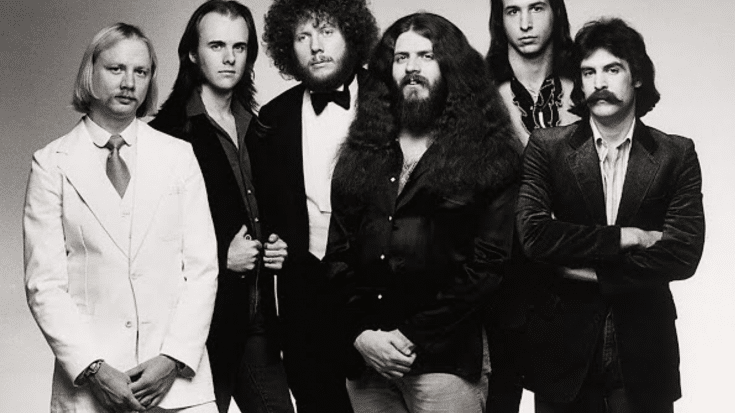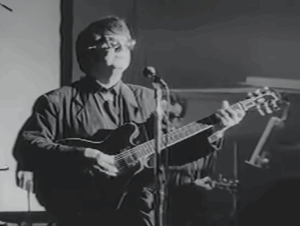10 ’70s Bands That Went Mainstream and Lost Their Edge

via Georgy Porgy's Favorites / YouTube
The 1970s were a golden era for rock music, with bands experimenting and creating some of the most iconic sounds in history. But as fame and commercial success grew, some groups strayed from their roots. These ten bands started out with raw, innovative energy but lost their edge as they moved toward mainstream appeal.
1. Chicago
Chicago started as a rock band with a strong jazz influence, delivering tracks with powerful brass sections and intricate arrangements. Early albums like Chicago Transit Authority featured a gritty, experimental sound that set them apart. Tracks like “25 or 6 to 4” showcased their raw talent and musicianship.
However, by the late ’70s, their sound shifted toward softer, radio-friendly ballads. Songs like “If You Leave Me Now” marked a departure from their original style. While this change brought them commercial success, it alienated fans who loved their earlier, edgier material.
2. Fleetwood Mac
Fleetwood Mac began as a British blues band, with Peter Green leading the way on tracks like “Albatross” and “Oh Well.” Their music had a raw, emotional depth that captured the spirit of the late ’60s and early ’70s blues revival.
After Lindsey Buckingham and Stevie Nicks joined, their sound transformed into polished pop-rock. Albums like Rumours dominated the charts, but the shift to mainstream success came at the cost of their blues roots. Many fans missed the grittier, more soulful sound of their early days.
3. Jefferson Starship
Rising from the ashes of Jefferson Airplane, Jefferson Starship initially kept some of the psychedelic rock that defined their predecessor. Early tracks like “Miracles” showed they could still experiment while appealing to a broader audience.
But by the late ’70s, their music leaned heavily into arena rock territory. The edgy counterculture vibe was replaced with a more polished, commercial sound, leaving some longtime fans yearning for the revolutionary spirit of their Airplane days.
4. Rod Stewart
Rod Stewart’s early career with Faces and his solo albums like Every Picture Tells a Story showcased his raspy voice and a raw rock and roll energy. Songs like “Maggie May” and “Stay with Me” cemented his place in rock history.
By the mid-to-late ’70s, Stewart shifted to a more mainstream, disco-influenced sound. Tracks like “Do Ya Think I’m Sexy?” brought him massive success but left some fans missing the rough-edged rocker they once admired.
5. Kansas
Kansas blended progressive rock with a Midwestern sensibility, delivering complex compositions like “Carry On Wayward Son” and “Song for America.” Their intricate arrangements and ambitious themes made them stand out.
As the decade progressed, the band focused more on radio-friendly hits like “Dust in the Wind.” While these songs were undeniably successful, they lacked the adventurous spirit that defined their earlier work, leaving some fans disappointed.
6. Genesis
Genesis began as a progressive rock band with Peter Gabriel at the helm, creating complex, theatrical albums like Selling England by the Pound. Their music was intricate, imaginative, and challenging.
When Gabriel left and Phil Collins took over as frontman, their sound shifted toward pop. While albums like Duke and Abacab were commercially successful, the transition to mainstream pop alienated fans of their earlier, more experimental style.
7. The Doobie Brothers
The Doobie Brothers started with a blend of rock, soul, and blues that made tracks like “China Grove” and “Listen to the Music” stand out. Their early work was filled with energy and a sense of fun.
When Michael McDonald joined the band, their sound became smoother and more focused on soft rock. Hits like “What a Fool Believes” brought them new fans but left some early supporters missing the raw energy of their original sound.
8. Styx
Styx gained attention with their mix of progressive rock and hard rock, producing ambitious tracks like “The Grand Illusion” and “Fooling Yourself.” Their music combined technical skill with emotional depth.
As their popularity grew, the band leaned into more commercial ballads like “Babe.” While these songs brought chart success, they lacked the complexity and edge that defined their earlier work.
9. Heart
Heart’s early albums, like Dreamboat Annie and Little Queen, showcased their powerful blend of hard rock and folk influences. Tracks like “Barracuda” and “Magic Man” highlighted their raw talent and energy.
By the late ’70s, their music took a softer turn, with tracks like “Dog & Butterfly.” The move toward a more polished sound disappointed some fans who loved their original rock intensity.
10. Journey
Journey started as a progressive rock band with a focus on instrumental skill and experimentation. Albums like Look into the Future featured intricate arrangements and showcased the band’s technical abilities.
When Steve Perry joined as lead vocalist, their music shifted to a more radio-friendly arena rock style. Hits like “Don’t Stop Believin'” brought them widespread fame but marked a departure from their more experimental beginnings.






















